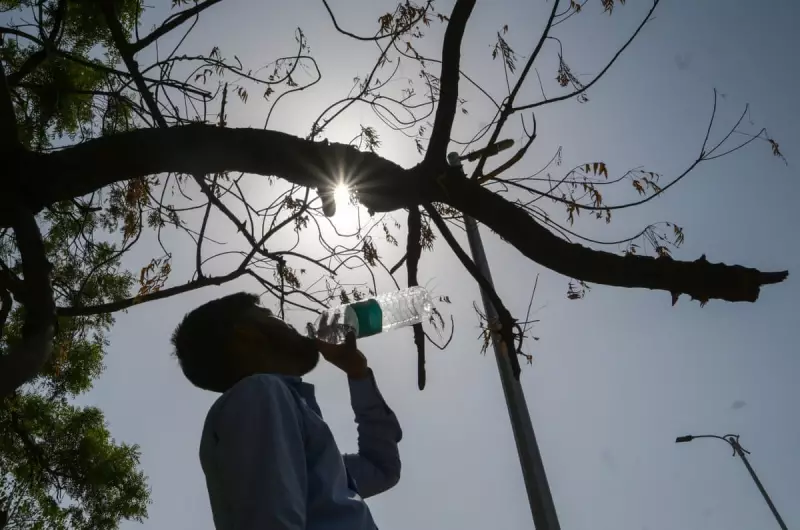
A stark new analysis has revealed the devastating human cost of Donald Trump's climate policy reversals, with projections indicating his administration's actions could lead to 1.3 million additional temperature-related deaths globally over the coming decades.
The Human Toll of Policy Reversals
Sophisticated modelling conducted by independent researchers for ProPublica and The Guardian shows that Trump's "America First" agenda of expanding fossil fuel use and dismantling emissions reduction efforts will have catastrophic consequences worldwide. The vast majority of these projected deaths will occur outside the United States, primarily affecting residents of poor, hot countries in Africa and South Asia that contributed least to the climate crisis.
The analysis draws on the mortality cost of carbon metric, a peer-reviewed concept developed by R Daniel Bressler of Bentley University. This builds upon Nobel prize-winning science that has informed federal policy for over a decade. The calculation accounts for deaths from heat-related causes like heat stroke and exacerbated existing illnesses, minus lives saved by reduced cold exposure.
According to the research, additional greenhouse gases released in the next decade due to Trump's policies could cause up to 1.3 million extra temperature-related deaths as the planet warms over the 80 years following 2035. These figures represent just a fraction of the estimated 83 million temperature-related deaths that could result from all human-caused emissions if climate pollution continues unchecked.
Global Inequality in Climate Impacts
The analysis reveals stark disparities in how climate consequences will be distributed globally. While the United States has produced 20% of world's greenhouse gases despite having only 4% of its population, it's expected to suffer just 1% of temperature-related deaths from the additional carbon emissions.
Meanwhile, some of the world's poorest nations will bear the heaviest burden. Niger and Somalia are projected to have the highest per capita death rates from increasing temperatures, while India is expected to suffer more temperature-related deaths than any other country. Pakistan, with just 3% of the global population, could experience between 6% and 7% of the world's temperature-related deaths.
"The sheer numbers are horrifying," said Ife Kilimanjaro, executive director of the non-profit USClimate Action Network. "But for us they're more than numbers. These are people with lives, with families, with hopes and dreams."
Systematic Dismantling of Climate Protections
Since returning to office, the Trump administration has dramatically accelerated its efforts to roll back climate initiatives. On his first day back, Trump authorised the US withdrawal from the Paris Agreement, which he previously labelled a "rip-off". This move came just days after the World Meteorological Organization declared 2024 the hottest year on record.
Over his first 100 days, Trump instigated more climate policy reversals than during his entire previous term. In March, his Environmental Protection Agency celebrated what it called the "biggest deregulatory action in US history", reversing numerous emissions reduction measures implemented under the Biden administration.
The administration's domestic policy bill, dubbed the "big beautiful bill" by Trump, further undermined climate efforts by cutting tax incentives for renewable energy and electric vehicles while making it cheaper to drill and mine on federal lands. The legislation also increased government support for coal and reversed efforts to cut methane emissions.
Marshall Burke, an economist at Stanford University's Doerr School of Sustainability, noted the significance of these reversals: "Prior to Trump, we had the most ambitious climate policy that the US has ever come up with. When we roll these things back, it is fundamentally affecting the damages we're going to see around the world."
The Science Behind the Projections
To calculate the potential death toll, journalists used modelling from Rhodium Group, an independent research firm that analysed policy changes implemented this year. Their midrange estimate suggests Trump's rollbacks will result in 5.7 billion metric tons of additional carbon emissions through 2035.
Using Bressler's mortality cost of carbon metric, which estimates that 4,434 metric tons of carbon will cause one death over 80 years, the analysis translates these emissions into human casualties. This figure represents the average lifetime emissions of 3.5 Americans or 146.2 Nigerians.
The White House dismissed these findings, with spokesperson Taylor Rogers attacking what she called the "Green Energy Scam" and stating that "America still doesn't buy the left's bogus climate claims". The EPA rejected Bressler's analysis as "an exercise in moral posturing, not rigorous science".
However, climate scientists have validated the mortality cost of carbon approach, with peer reviewers describing Bressler's published research as "valuable and intuitive". Bressler himself served as climate staff economist at the White House Council of Economic Advisers from 2021-2022.
Experts emphasise that these projections represent conservative estimates, as they don't include deaths from other climate-related causes like droughts, floods, wars, or reduced crop yields. The actual death toll from Trump's climate policy reversals could be substantially higher when these additional factors are considered.





